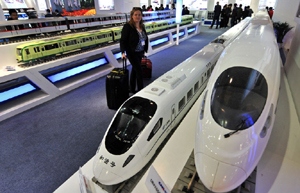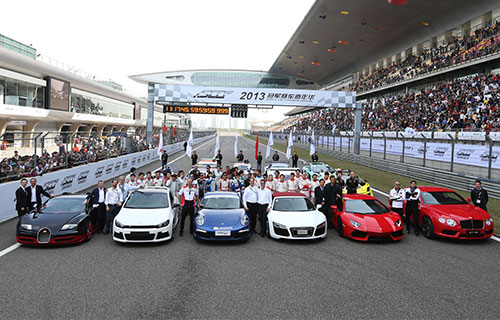

Imagine a patient is lying in a hospital bed. A nurse enters his room with a cup of six pills. How can he tell that each pill is correct and that no mistakes have been made when preparing the medicine?
US inventor and former surgeon Hank Wuh, chairman of TruTag Technologies, has come up with a solution.
"It seems difficult when the tablets are not packaged. But with TruTag, an edible, dust-size microtag embedded in a pill, and with a scanner, you can ensure the medication is right and that the pills are genuine," Wuh said.
"The scanner can also tell if the drug is out of inventory and it's time to replenish it," he added.
Named a 2014 Technology Pioneer by the World Economic Forum, or "Summer Davos", TruTag Technology is actively seeking Chinese partners, investors and scientists.
"China is vibrant, growing and on the global stage of innovation. It's one of the most important markets in the world for brand protection, and we are going to actively develop a presence here," Wuh said.
The world is deeply aware of the issues underpinning public health in China. Four babies died and more than 10,000 were hospitalized in 2008 after baby formula was contaminated by melamine. Four years earlier, toxic milk powder killed at least a dozen infants.
In terms of food safety issues that have periodically plagued the country, melamine-laced dairy products, pesticide-soaked vegetables and re-used cooking oil are just a few examples.
In January, China said it would offer whistle-blowers rewards of up to 300,000 yuan ($49,019) for reporting food and drug problems. And in March, the government announced it was creating a new "superministry" to ensure the safety of China's food and drugs.
The General Food and Drug Administration will assume responsibility for setting standards and monitoring production, distribution and consumption - tasks that were previously handled by as many as nine different government organizations.
"It is important that people can verify a product before opening the package," said Dong Jinshi, executive vice-president of the International Food Packaging Association in Beijing.
Some fraudsters have filled used Wuliangye or Moutai bottles with fake liquor, and people can't tell the difference until they taste the product. If a scanner could verify or trace a product before it is opened, it would help avert such fraud.
But Dong also said that in the case of medication, it is vital to ensure that the microtag is 100 percent safe for humans and won't trigger a dangerous reaction.
Wuh said that the TruTag technology will help prevent counterfeiting, enhance the safety and traceability of food and medicine, improve tracking and logistics, assure product quality and enable the Internet of Things.
"We imprint the fingerprint of the product into the fabric of the product itself, so people everywhere can test every product," Wuh explained.
"The safety of food and medicine is a real concern. So our goal is to work with Chinese partners and implement technology for the benefit of the Chinese public," he said, noting that he is looking for Chinese companies with good track records and a network big enough to handle large projects.
 Latest trend in tram
Latest trend in tram
 CCTV 2014 advertising auction kicks off in Beijing
CCTV 2014 advertising auction kicks off in Beijing
 Toyota TMEC opens hybrid tech R&D operations
Toyota TMEC opens hybrid tech R&D operations
 Toilet paper wedding dress to advocate low carbon lifestyle
Toilet paper wedding dress to advocate low carbon lifestyle
 Adrenalin-pumping competition on the course
Adrenalin-pumping competition on the course
 High-octane weekend of motorsport
High-octane weekend of motorsport
 3D light show displayed in Shanghai
3D light show displayed in Shanghai
 Lenovo moves up the ranks
Lenovo moves up the ranks